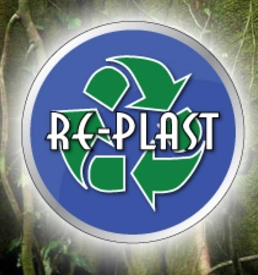Re-Plast was created in 2005 and has since developed to specifically address the lack of proper disposal methods for industrial plastics and oversize metals, and we are constantly sourcing new materials to recycle. As a result of our commitment, we have been able to divert millions of pounds of material from landfill annually, ultimately saving our customers TENS of THOUSANDS of dollars in disposal fees annually! No company is too small, or too large to benefit financially from our services. Re-Plast’s complete Recycling Management service provides collection and recycling to industrial and commercial customers throughout Ontario and growing.
We educate our customers on how to turn their waste stream into a revenue stream!
Your goal is to have very minimal waste sent to our landfills if none at all!
We provide companies with complete Waste Stream Analysis and Recycling Management Programs.
We educate a broad range of customers in many different sectors on how to be more cost-effective and increase profit margins by identifying all materials that can be recycled.
Various materials such as plastics, including film, cardboard, metals and salvage can all be handled easily and efficiently.
We visit each client and location for an initial assessment and waste audit of their individual recycling needs.
Upon completion, we make the necessary recommendations to initiate or enhance your recycling program.
Recycling
The process of turning used materials (waste) into new products to prevent waste of potentially useful materials. Furthermore, recycling reduces the consumption of fresh, raw materials, energy usage, air pollution (from incineration) and water pollution (from land-filling) by reducing the need for “conventional” waste disposal, and lowers greenhouse gas emissions compared to virgin production. Recycling is a key component of modern waste reduction and is the third component of the “Reduce, Reuse, and Recycle” waste hierarchy.Recyclable materials include many kinds of glass, paper, metal, plastic, textiles, and electronics. Although similar in effect, the composting, or other reuse of biodegradable waste – such as food or garden waste – is not typically considered recycling.
In the strictest sense, recycling of a material would produce a fresh supply of the same material—for example; used office paper would be converted into new office paper, or used foamed polystyrene into new polystyrene. However, this is often difficult or too expensive (compared with producing the same product from raw materials or other sources), so “recycling” of many products or materials involve their reuse in producing different materials (e.g., paperboard) instead. Another form of recycling is the salvage of certain materials from complex products, either due to their intrinsic value (e.g., lead from car batteries, or gold from computer components), or due to their hazardous nature (e.g., removal and reuse of mercury from various items).
Did You Know
In 2008, Canadians produced over 1,031 kilograms of waste per person, virtually the same per capita production as in 2006. Of this total, 777 kg went to landfills or was incinerated while 254 kg was diverted from landfill. Overall,this translated into 34 million tonnes of waste handled by the waste management industry; 26 million tonnes of that waste was disposed of in landfills or was incinerated and over 8 million tonnes was diverted or processed through material recovery facilities or centralized composting operations.Approximately 21 million tonnes of waste generated came from non-residential sources while the other 13 million tonnes was from residential sources.
E-waste
Recycling raw materials from end-of-life electronics is the most effective solution to the growing e-waste problem. Most electronic devices contain a variety of materials, including metals that can be recovered for future uses. By dismantling and providing reuse possibilities, intact natural resources are conserved and air and water pollution caused by hazardous disposal is avoided. Additionally, recycling reduces the amount of greenhouse gas emissions caused by the manufacturing of new products. It simply makes good sense and is efficient to recycle and to do our part to keep the environment green.
Metal Recycling
Metal Recycling is an important environmental, as well as, economical aspect to the recycling business. Recycling metals is a pivotal waste management process, as far less energy is used in recycling metals, than it is in mining them. The positive impact that recycling can have to our environment is immeasurably valuable for future generations to come. Scrap metal must be separated into two classifications before recycling: ferrous and non-ferrous.
Ferrous scraps are any scrap metal or alloy that is primarily made up of iron or steel. Ferrous scrap metal usually comes from sources like disposed household appliances, old cars, old railroads tracks, decommissioned ships, and construction debris.


 Member
Member